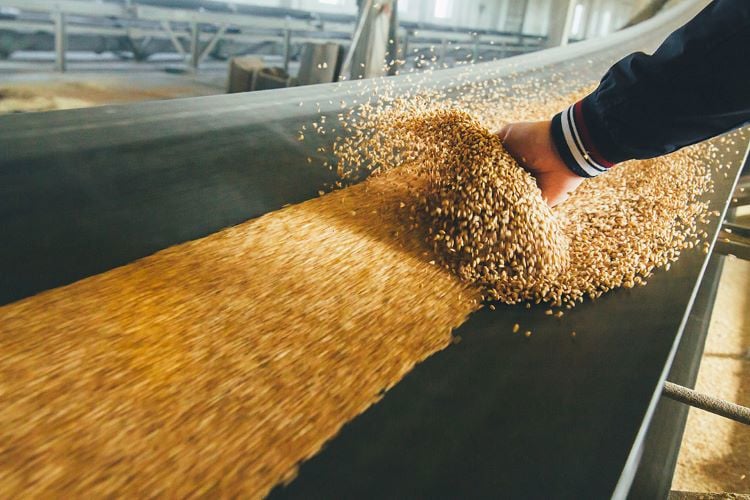Feed processing and quality programme
Efficient and safe feed production is the foundation of any poultry and livestock production system. Spoilage and pathogenic microorganisms, such as Salmonella, E.coli, fungi and yeast, can negatively impact feed quality and nutritional value. On the other hand, effective moisture management can positively impact feed processing efficiency and throughput.
Through our feed processing and quality programme, we offer feed processors and integrators total solutions by partnering up to find the most efficient ways to maintain feed quality, extend its shelf-life and improve feed mill efficiency.
Process moisture management
Managing feed's moisture profile is essential at the feed mill, in transport and during storage. Various processes and conditions that occur during feed manufacturing can adversely affect feed quality and producers’ economics. Organic acid blends are a useful tool to optimise feed manufacturing efficiency and feed integrity and support feed hygiene.
Friction during grinding that takes place in the manufacturing process generates heat, which leads to moisture loss. This can result in lost weight of the feed produced and a sub-optimal pellet. Introducing a hydrating solution comprised of water mixed with blends of surfactants and organic acids into the mixing process can improve the wetting and absorptive properties of the feed.
Specific surfactants allow moisture to be distributed more evenly throughout the ingredients, which allows for better binding and cooking in the conditioner. The surfactants' binding abilities also optimise starch gelatinisation and reduce moisture loss from the feed. Optimising feed mill efficiency can increase not only moisture levels in feed, but also improve feed mill profitability.


Feed hygiene
Pathogenic microbes, such as Salmonella and E.coli, not only affect the nutritional quality of feed but may also lead to reduced animal performance. Measuring risk is an important step in safeguarding feed safety. By analysing raw material and feed samples, you can ensure the most effective solution is applied.
Trouw Nutrition offers solutions through buffered blends of organic acids that can help safeguard microbiological risks after feed leaves the mill and protect against recontamination risk across the distribution chain. The buffering of organic acids is essential to ensure the solution evaporates less and has a longer period of efficacy. As hygiene enhancers, organic acids also provide a good alternative to formaldehyde, which has been banned in the EU for several years.